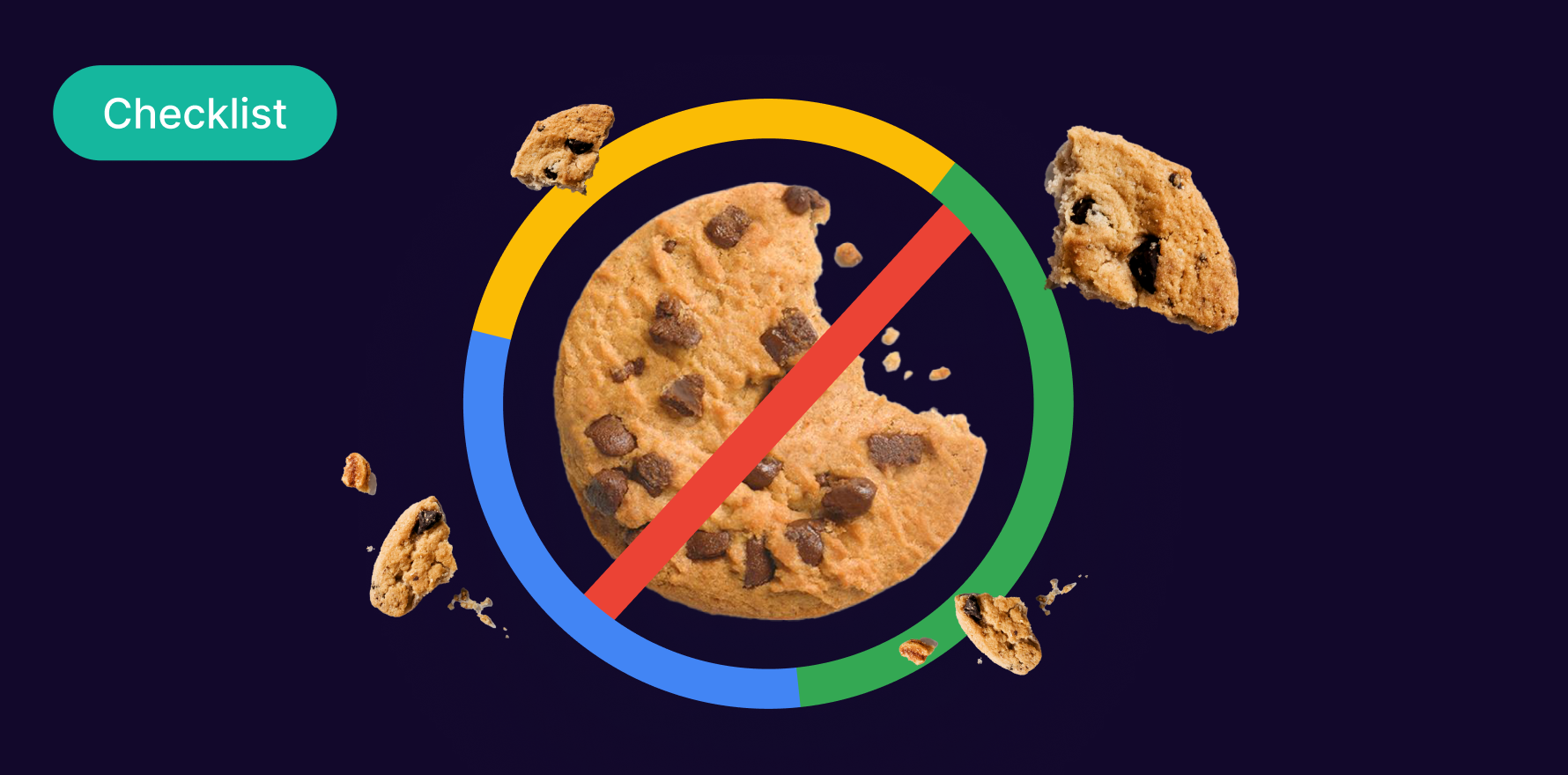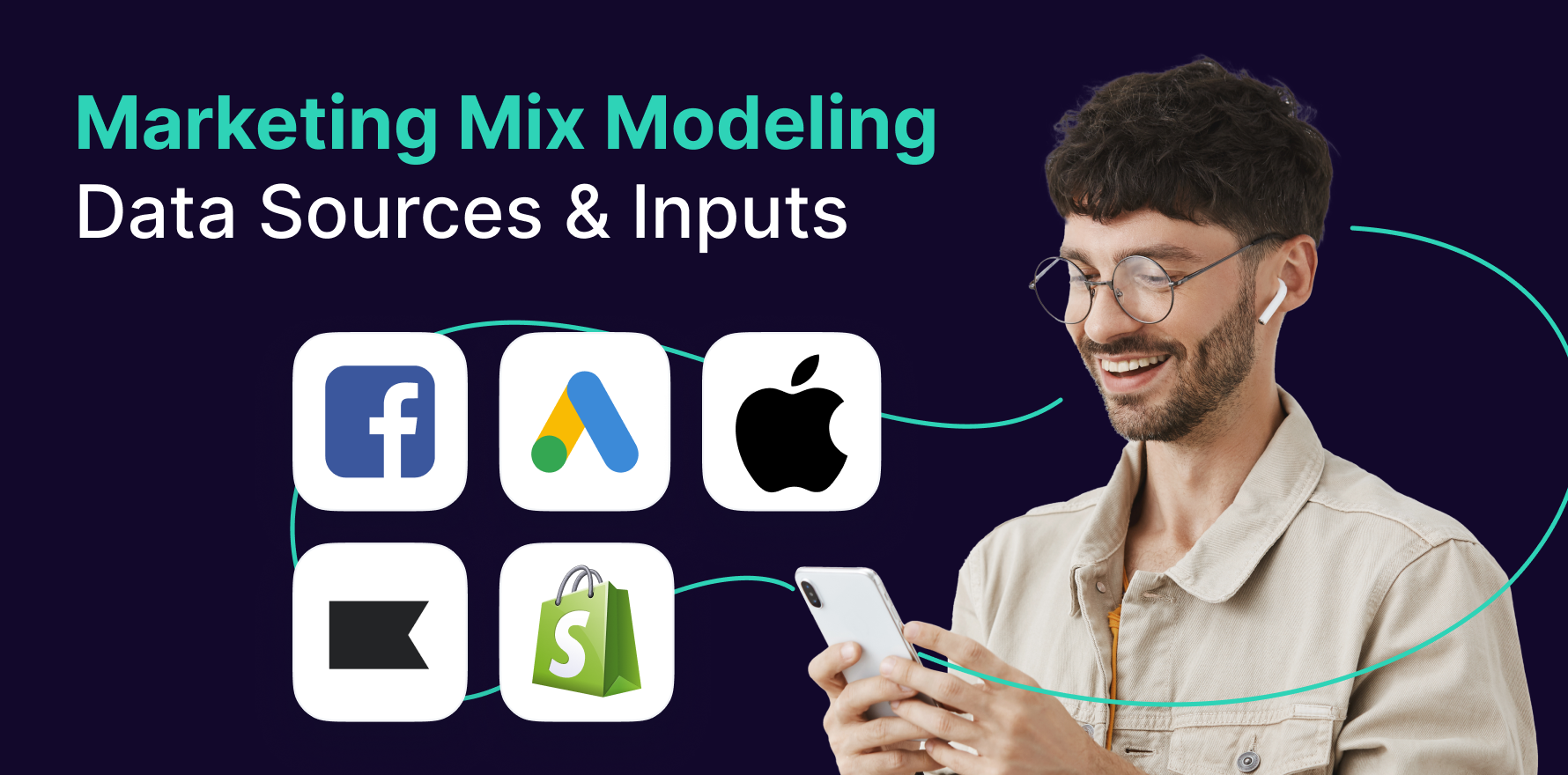In recent years, the ecommerce industry has experienced remarkable growth and is projected to continue expanding at an impressive rate. Worldwide retail ecommerce sales reached around 5.2 trillion U.S. dollars in 2021. It is expected that this number will increase by 56 percent in the upcoming years, reaching approximately 8.1 trillion dollars by 2026.
With all the buzz surrounding ecommerce, merchants, both offline and online, are being encouraged to enhance their online presence to provide better customer service and meet their ever-changing expectations. Nowadays, ecommerce places much greater emphasis on the shopping experience offered in the store compared to the past, when setting up a bare-bones online store was sufficient.
Advantages of using Shopify to build your online store
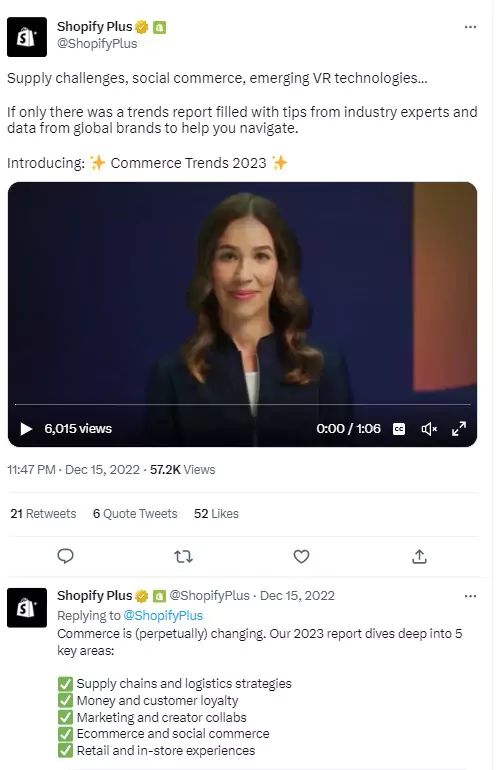
If your primary objective is to launch an online store quickly for a small or medium-sized business, then Shopify, a fully hosted solution, is definitely a platform to consider.
- Stacked with over 100 Shopify theme development templates in its Theme Store, this platform offers you free and paid designs curated by professionals from various industries. The best part, you can customize these templates to fit your branding needs with ease and finesse.
- Shopify, as a tool, is extendable and feature-rich, with a vast App Store that provides over 1400 different apps to personalize your store’s functionality.
- One of the most appealing features Shopify has in store is 24/7 support. Whether you’re setting up an online store for the first time or require help with anything technical, Shopify lends phone support, live chat, and email support.
- Shopify is a SaaS (software as a service) platform, meaning it is hosted, and you don’t have to worry about tasks such as hosting or maintenance.
- Shopify is an excellent time-saving option, especially if you’re not tech-savvy, allowing you to concentrate on other critical aspects of your business.
Dive into the realm of Shopify ecommerce trends
Fun Fact: With over 500,000 online stores currently using the popular ecommerce platform, Shopify is responsible for managing a staggering gross merchandise volume of more than $40 billion. The company’s remarkable revenue growth since 2013, with almost a doubling of annual revenues each year, is a clear indication of how rapidly Shopify is expanding.
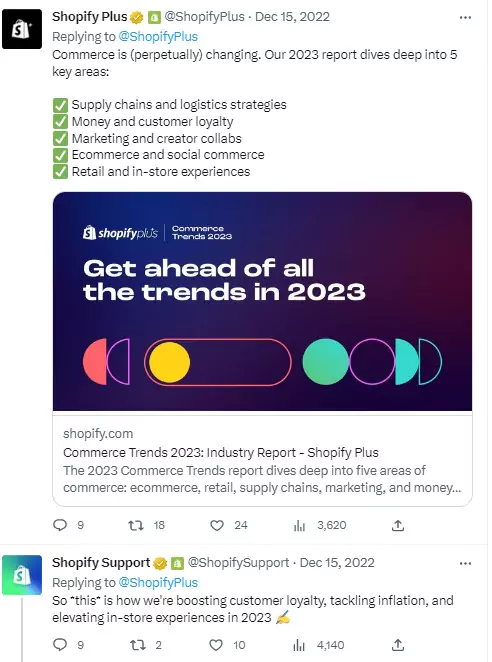
Looking for more food for thought? Here’s a message from the mastermind behind Shopify.
“When you build technology it’s not just a matter of “what.” In most cases, the success ends up determined by “how” you build it—which foundations you used, how simple and scalable it is.” – Tobias Lütke, founder and CEO of Shopify
On this note, retailers need to adapt and adopt the latest Shopify ecommerce trends to stay ahead of their competition in such a dynamic industry. We have put together the top Shopify trends influencing the Shopify arena. Here’s a detailed overview of 10 Shopify development trends anticipated for 2023:
1) Voice search shopping is on the rise
Who needs to type when voice commands are living up to the hype? Believe it or not but 71% of consumers prefer using voice commands instead of typing when conducting searches. With the convenience of saying “Hey Google” or “Hey Siri” and getting results, there’s no need to manually type out queries. The voice-assistant-search market is expected to reach $4 billion in 2022 and grow to around $7.30 billion by 2025, driven by technological advancements and human inclination towards convenience.
During the pandemic, the use of voice searches increased due to two key factors. Firstly, to prevent multiple individuals from touching the same gadget and spreading disease, the most popular voice commands were for music or the news. Secondly, as people were stuck at home and bored, they turned to voice searches. With voice search now available in ecommerce stores, it’s safe to assume that it’s the next big thing. The earlier you seize this opportunity, the better it is for your business. Smooth searches significantly enhance the customer experience, leading to higher conversions.
To provide your customers with a hassle-free purchasing experience, Shopify offers Phebi, a voice-enabled search tool. Phebi is an excellent way to boost sales and conversions using voice search, and it is available on all modern desktop browsers, iOS, and Android. Phebi scans your website, creates a personalized audio and text database, and integrates it with the Shopify inventory system. Check out Phebi’s business-related capabilities here.
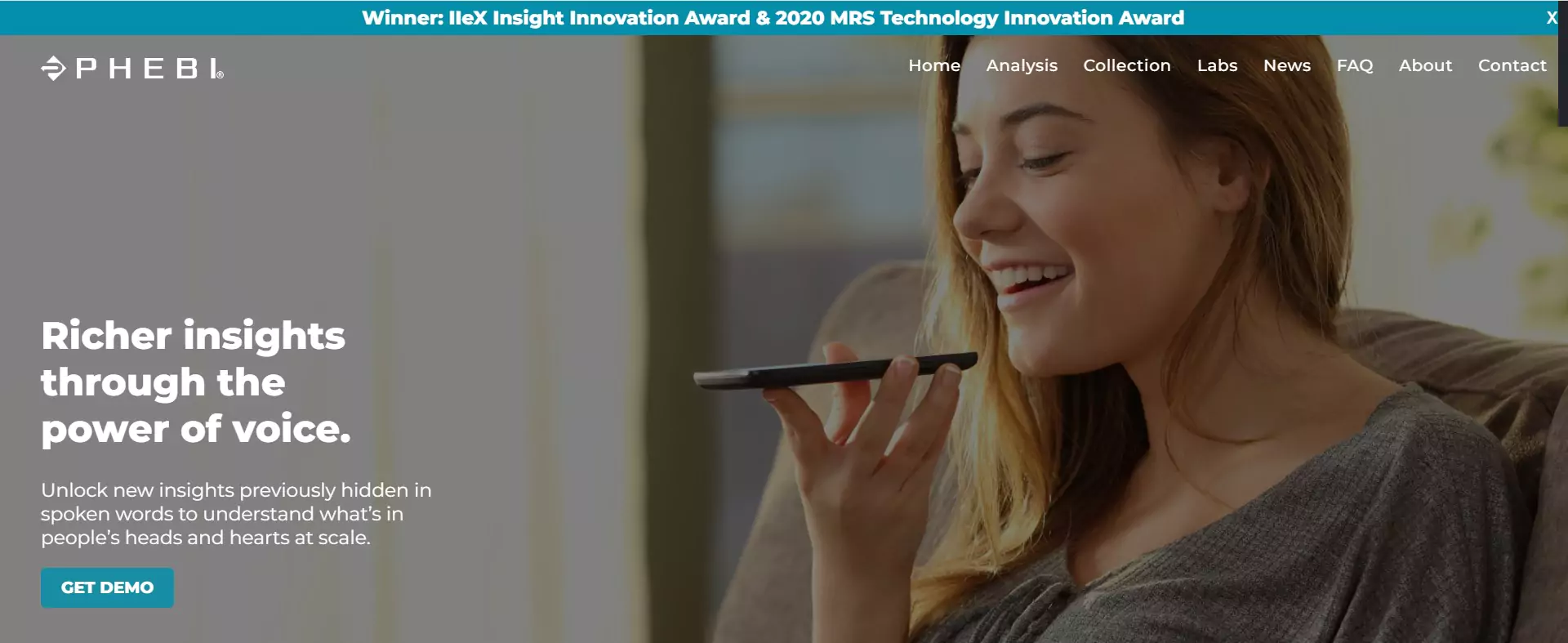
2) AR and VR are the new normal
Ecommerce goes above and beyond accommodating stores that sell only clothing or electronics. From vases to furniture and beds, a wide and diverse assortment of products can be sold online.
To provide their customers with a near-real product experience, many companies are utilizing augmented reality features. Up to 40% of customers are willing to pay a higher price for a product if they can utilize AR to experience it. This could be attributed to the fact that AR provides eCommerce customers with a heightened sense of assurance.
IKEA is an excellent example of a company using this strategy in its online stores. With the help of the brand’s augmented reality app, IKEA PLACE, customers can see how a furniture item would look in a particular room. When a user takes a picture of the area where they want to place the furniture, the app measures the space and recommends the furniture that fits and looks best in that area.

The app uses Apple’s augmented reality technology and is currently only available through the Apple store. Although many people may download the app just to try it out, IKEA was still able to attract many users who looked at their products. As a result, they are likely to think of IKEA when looking for furnishings.
3) AI and ML are a real force
The ecommerce industry has consistently been a game-changer, first revolutionizing the brick-and-mortar industry and compelling physical retailers to reimagine their operations. Subsequently, eCommerce brands have continued to innovate by capitalizing on technological advancements such as eWallets and mobile apps, all aimed at providing exceptional customer experiences.
Recent predictions claim that by 2025, a staggering 95% of all customer interactions will be handled by AI technologies, which is set to revolutionize the industry once more. Additionally, it is predicted that AI-powered revenues in eCommerce will soar to $36.8 billion globally by 2025.
Here’s an interesting example:
Ski enthusiasts often purchase their gear from Black Diamond Equipment, an online ecommerce retailer. This website uses artificial intelligence to give individual recommendations to every customer.
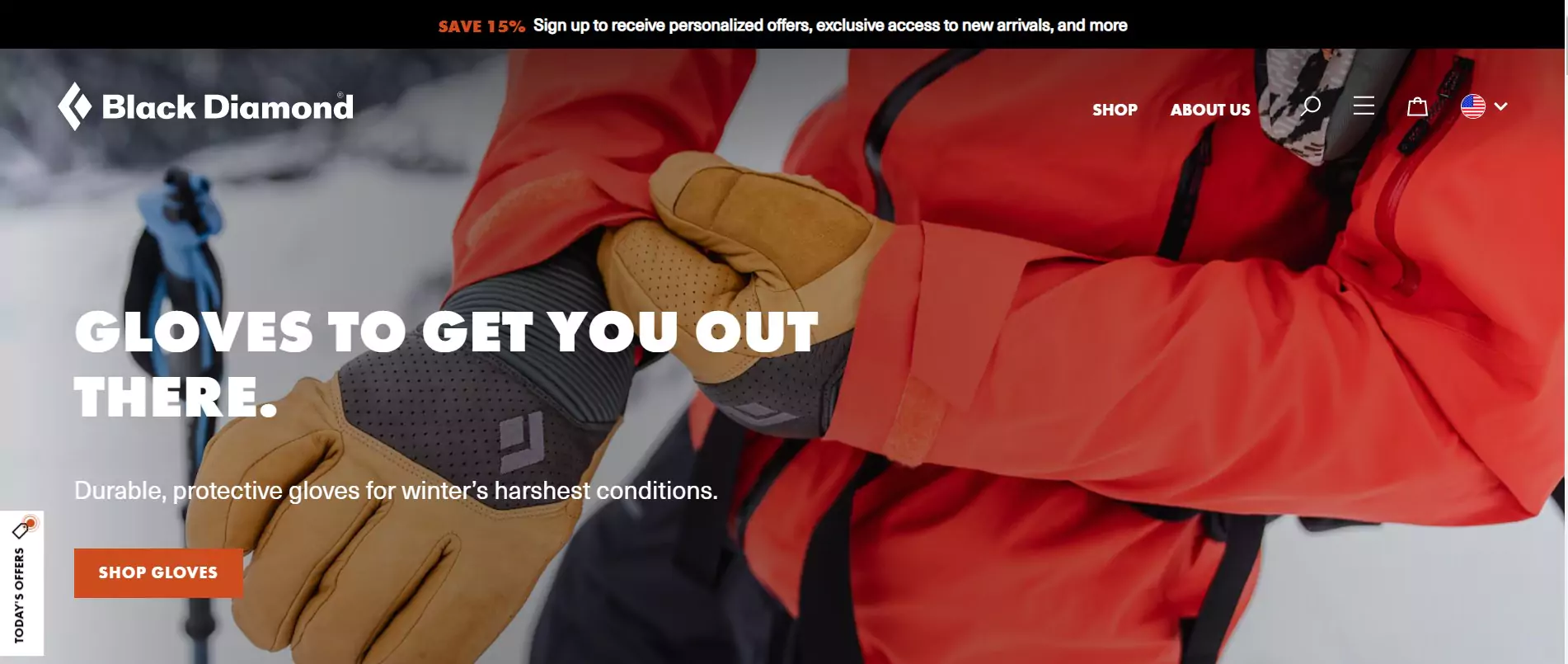
The AI system predicts what customers may want to purchase based on their browsing history, previous orders, and even the weather. Instead of waiting until checkout, the system actively makes suggestions. As a result, more customers are making purchases and fewer are abandoning their shopping carts.
4) Chatbots and virtual customer service are the future
Chatbots, like voice search, are gaining widespread attention and are one of the more popular Shopify trends. They provide fast and dependable customer service by providing 24/7 support and minimizing human errors.
Using Natural Language Processing (NLP) and artificial intelligence, Chatbots can comprehend what humans require and guide them to their desired results with minimal effort. Additionally, this software utilizes previous conversation data to recognize common questions and Machine Learning (ML) to improve at answering those questions in the future.
North Face, the outdoor retailer, employs IBM’s AI supercomputer Watson to offer a tailored online shopping experience for its customers. By answering a series of questions, customers can refine their product options.
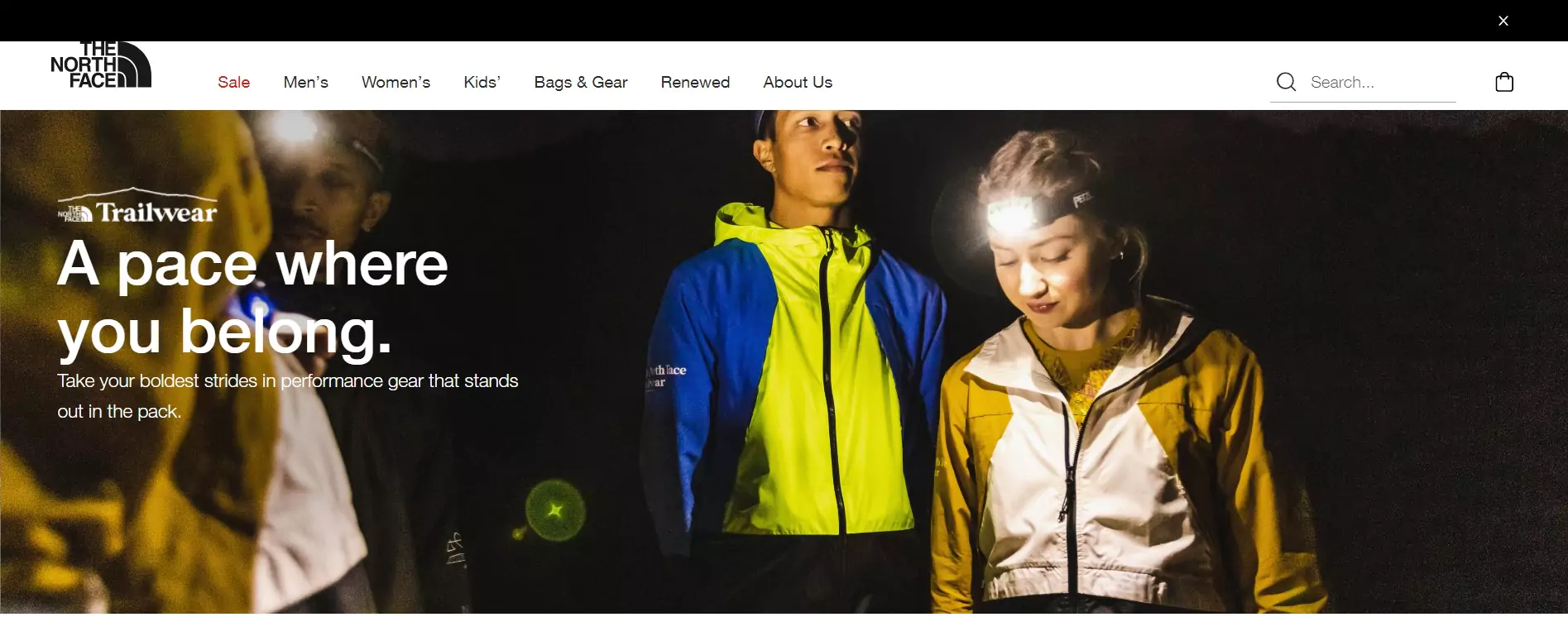
For example, if a customer indicates that they enjoy winter hiking, the program will inquire about their location and preferences to suggest an appropriate jacket that will keep them warm and suit their preferred activities. With this system in place, customers can easily find the perfect product without having to sift through hundreds of options.
5) Micro-influencer marketing is must-do
Micro-influencer marketing has emerged as a popular trend among Shopify merchants looking to drive sales and increase brand awareness. Unlike traditional influencer marketing, which typically involves partnering with high-profile celebrities or social media stars, micro-influencer marketing involves collaborating with individuals who have a smaller, but highly engaged following on social media. These influencers are often seen as more authentic and relatable, making their endorsements more impactful.
Shopify store owners are leveraging micro-influencer marketing by identifying influencers who align with their brand and target audience and partnering with them to create content and promote products. With the rise of social media and the increasing importance of word-of-mouth recommendations, micro-influencer marketing has become a cost-effective and powerful strategy for driving sales and building brand loyalty.
One example of an ecommerce brand that has successfully implemented micro-influencer marketing is MVMT Watches. MVMT, a popular watch brand, partners with micro-influencers to promote its products on social media. These micro-influencers are often everyday people who have built a following on social media platforms such as Instagram and YouTube by sharing their interests and passions.

By collaborating with these micro-influencers, MVMT is able to reach a highly engaged audience of potential customers who are interested in fashion and lifestyle content.
6) Subscription-based models look promising
Shopify has recognized the importance of subscription-based businesses and offers built-in subscription management tools for creating and managing subscriptions, automating payments, and tracking customer data. Third-party subscription management apps are also available for advanced features such as subscription box management, upselling, cross-selling, and analytics. Shopify is expected to continue investing in subscription-based businesses to provide more tools and resources for store owners, helping them increase customer loyalty and generate recurring revenue.
Dollar Shave Club is a subscription-based service that delivers high-quality razor blades and grooming products directly to customers’ doors on a regular basis. Customers sign up for a subscription plan based on their shaving needs and preferences, and then receive a new set of blades and other products every month or every other month, depending on the plan.
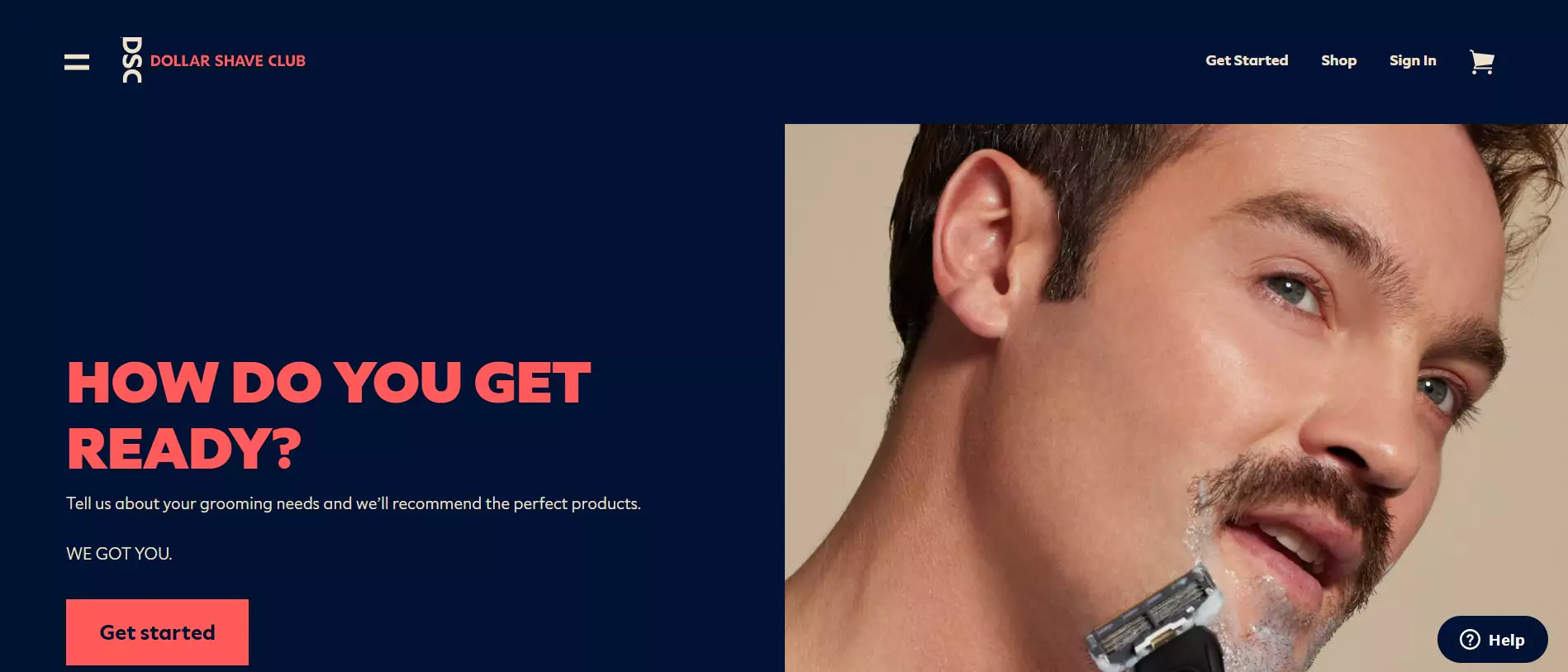
In addition to razors and blades, Dollar Shave Club also offers a variety of other grooming products such as shaving cream, hair styling products, and skincare items. The company’s subscription model allows customers to receive high-quality grooming products on a regular basis without having to go to the store, while also creating a reliable source of recurring revenue for the business.
7) It’s all about sustainability and social responsibility
Consumers are increasingly seeking sustainable and ethical products, which is creating an opportunity for e-commerce businesses to differentiate themselves. Shopify is supporting store owners in promoting their environmentally friendly and ethically made products by offering a sustainability fund, a “sustainability tab” for product pages, and a “sustainability toolkit” with resources for businesses to reduce their environmental impact. These initiatives help businesses attract and retain customers who value sustainability and social responsibility and contribute to a more sustainable future.
Here’s an intriguing example:
Patagonia is an environmentally conscious and socially responsible e-commerce brand. They use recycled and sustainable materials, reduce water usage in manufacturing and ensure fair treatment and safe working conditions for workers.
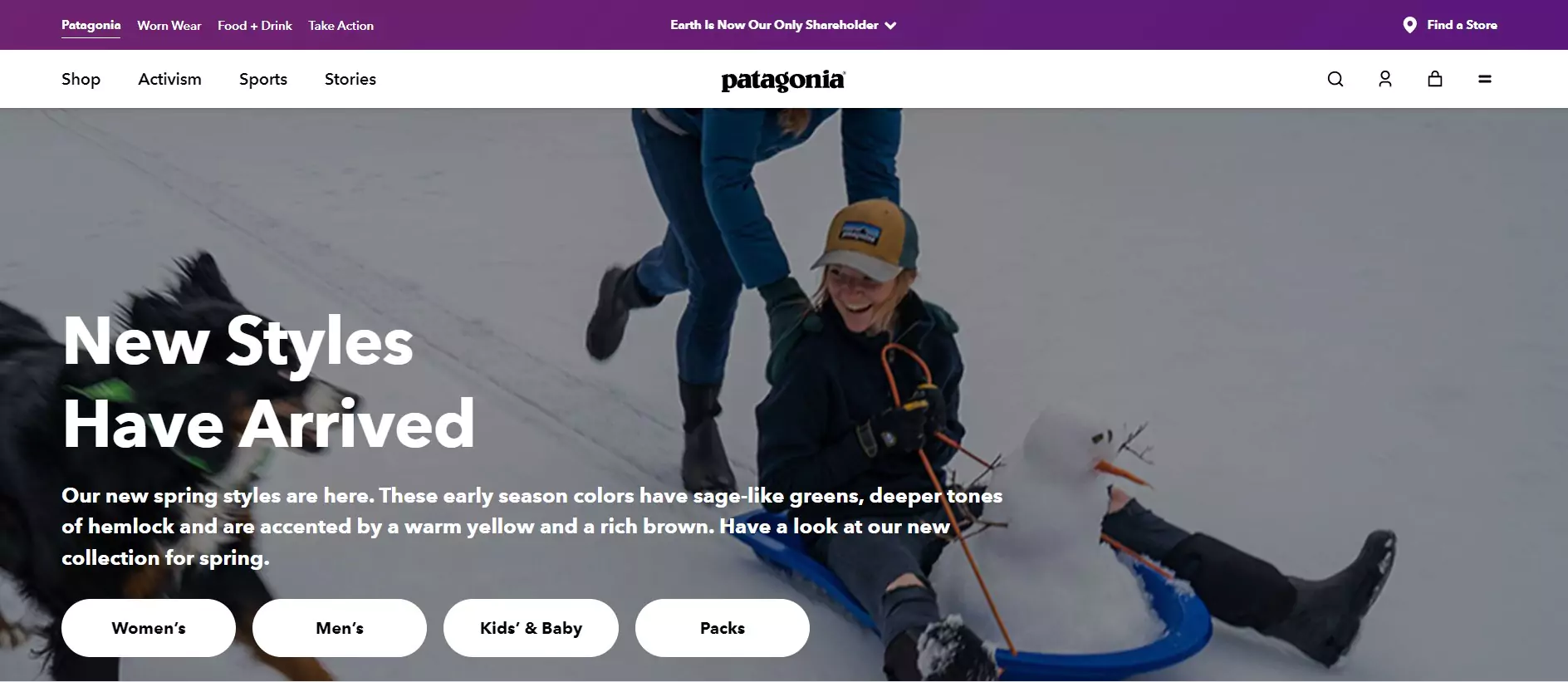
Patagonia promotes environmental and social causes through initiatives such as their “Worn Wear” program, 1% donation to environmental causes, and advocacy campaigns. These commitments have helped build trust with customers who value sustainable and socially responsible products.
8) Keeping it interactive and engaging matters
Interactive product pages, using elements such as 360-degree product views and videos, are expected to be more popular in 2023. To support this trend, Shopify will provide additional tools and resources for store owners to create engaging and interactive product pages. This may include apps, plugins, augmented reality (AR), and virtual reality (VR) features. Shopify’s customizable platform will allow for unique features and functions to be added to product pages, enabling businesses to differentiate themselves while improving the online shopping experience for customers.
Warby Parker, a company that sells prescription glasses, sunglasses, and contact lenses online, features an interactive “Virtual Try-On” tool, which allows customers to see how various frames will look on their faces using a computer or mobile device’s camera.
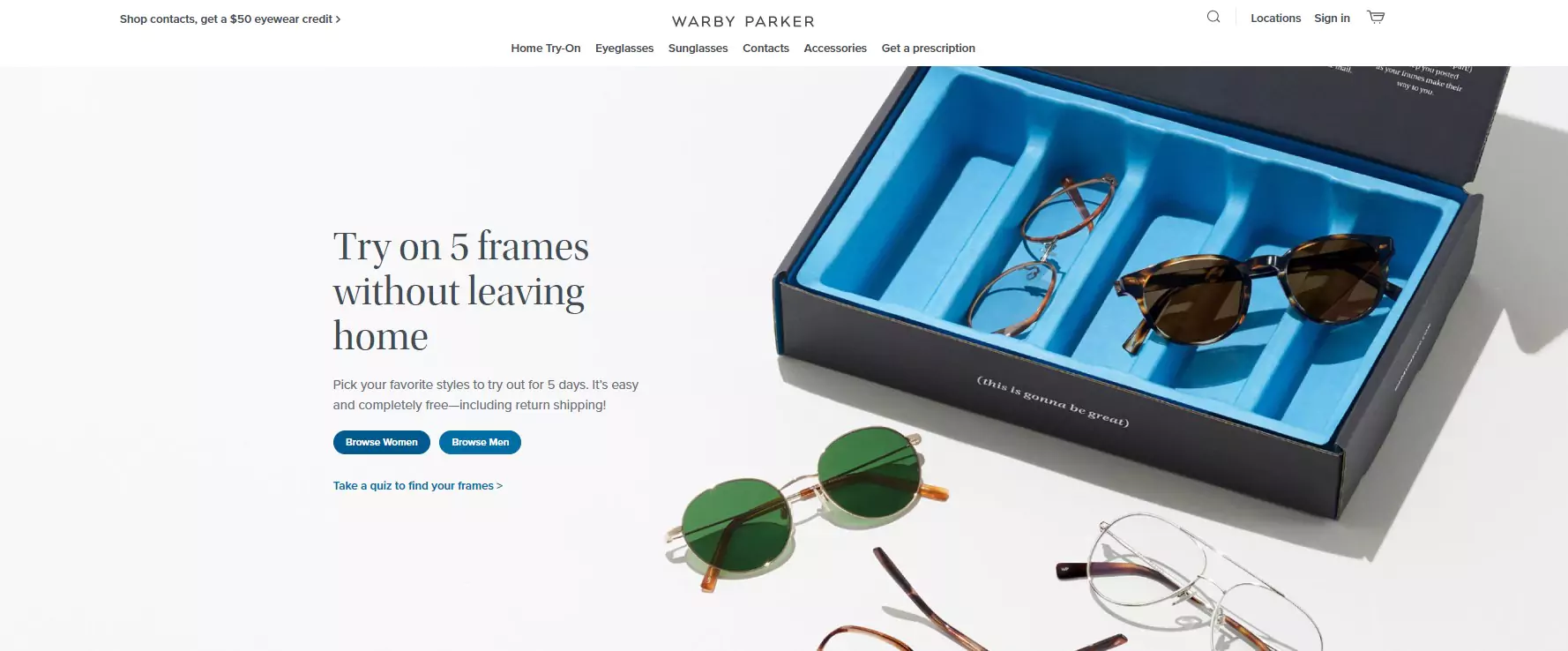
The product pages also include 360-degree views of each frame, detailed product descriptions, and customer reviews, providing an engaging online shopping experience.
9) Being mobile-friendly will go a long way
As the use of mobile devices for online shopping continues to grow, having a mobile-friendly ecommerce store is becoming increasingly crucial. Mobile-first design refers to the practice of designing and optimizing websites for mobile devices, rather than simply adapting desktop designs to fit smaller screens. This approach can help to ensure that the user experience is optimal for mobile users and can lead to increased engagement and conversions.
Glossier is a D2C brand with a responsive mobile design, featuring a clean and simple layout optimized for touch navigation.

The mobile-friendly product pages have large images and easy-to-read information, and the simplified checkout process and mobile app make shopping easier. The brand’s responsive design offers a seamless and enjoyable shopping experience, leading to increased sales and customer loyalty.
10) The demand for personalized experiences is only increasing
In today’s fast-paced and highly competitive ecommerce environment, personalization has become a crucial factor in providing an exceptional customer experience. Personalization allows ecommerce businesses to tailor their offerings to each individual customer, providing them with a more relevant and engaging shopping experience that increases the chances of conversion and fosters brand loyalty.
Stitch Fix is an ecommerce D2C brand that uses data science and human expertise to provide personalized fashion recommendations. Customers complete a style quiz, which Stitch Fix’s algorithm uses to assign a personal stylist and curate a customized selection of clothing and accessories.

The company also offers personalized promotions and discounts based on customer feedback and purchase history to encourage continued shopping. This personalized approach increases customer satisfaction, loyalty, and sales, allowing the company to grow its customer base and expand into new markets
Shopify ecommerce trends in a nutshell
As ecommerce continues to evolve and become more competitive, staying current with the latest Shopify development trends is essential for store owners who want to remain relevant and successful in the industry. By incorporating the latest Shopify trends into their stores, ecommerce businesses can gain a competitive edge and provide a better shopping experience for their customers. For example, by optimizing their store for mobile devices and providing a responsive design, businesses can attract and retain more mobile users, who now make up a significant percentage of online shoppers. By leveraging personalization tools and resources, store owners can provide more targeted and customized shopping experiences, leading to increased customer satisfaction and loyalty. With Shopify being one of the most popular ecommerce platforms, it’s particularly important for store owners to stay informed about the latest developments and updates.
You may also like
Essential resources for your success





